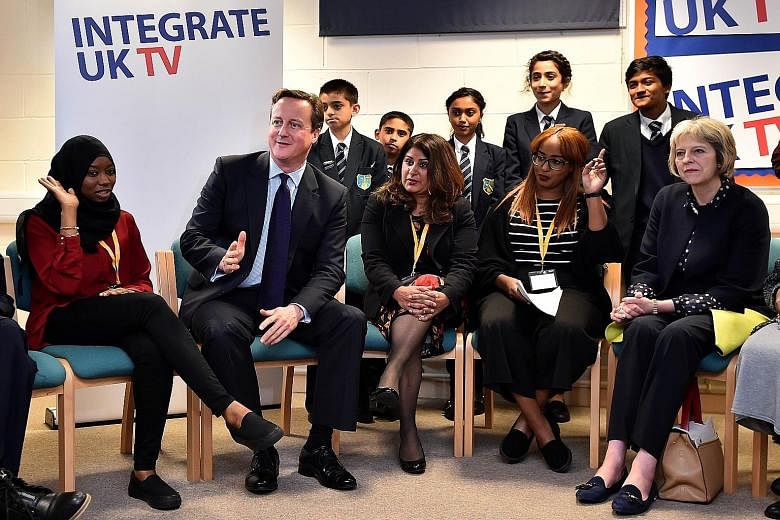The British government, in an effort to curb the number of its citizens who are attracted to terrorism, has announced new measures to combat Islamic fundamentalism and political radicalisation.
"This is a generational battle, perhaps the defining one of this century," British Prime Minister David Cameron said, as he unveiled his country's new Counter-Extremism Strategy.
Under the measures, parents will gain additional rights to prevent their children from travelling abroad for the purpose of terrorist activities, while government regulators will be given new powers to prevent those advocating violence from being associated with schools, universities, places of worship or the media.
British parents already have the right to request the cancellation of the passports of their children, if they are suspected of wanting to travel to fight for the Islamic State in Iraq and Syria terrorist organisation, or for any other network which practises violence. But the current parental powers apply only to children up to the age of 16; from now on, these will be extended to all under-18s.
Although British Home Secretary Theresa May has admitted that only a "small number" of parents have used these powers, she insisted that they will be useful.
"If you talk to, as I have, parents of young people who have been on the path to radicalisation, or perhaps parents, as I have heard from, who have children who have gone out to Syria, some of whom have died out there fighting, then they are saying that they want to see more action taken," Ms May told the BBC, Britain's state-funded broadcaster.
With police statistics indicating that 338 people were arrested this year alone for alleged terrorism offences and that a fifth of these suspects were under 20 years old, Mr Cameron is now seeking to address growing concerns that not enough is being done to tackle home-grown radicalisation of youngsters in towns and cities across Britain by vowing to fight the extremist narrative "every day, at the kitchen table, on the university campus, online and on the airwaves".
Under the new package of laws and regulations, anyone convicted of a terrorism offence will also have to attend a mandatory counter-radicalisation education course after serving his sentence.
More significantly, anyone who has a criminal record for a terrorism offence will be automatically barred from ever working with minors or teaching in an educational establishment; in effect, those convicted of terrorism will be treated similar to paedophiles and other sex offenders.
"We have to stop this seed of hatred even being planted in people's minds and cut off the oxygen it needs to grow," said Mr Cameron.
Britain's media regulator will also be given additional powers to strengthen sanctions against channels that broadcast extremist content or give a platform to hate preachers.
And the powers will target even those who do not specifically advocate violence if their views are deemed racist, or if they spread the sort of conspiracy theories which very often serve as the initial justification for terrorist attacks.
Officials in London are also allocating an additional £5 million (S$10.7 million) to be distributed in grants to Muslim youth organisations which promote tolerance within their communities.
And the authorities have also promised to look into the operation of the syariah courts, Islamic tribunals allowed to operate informally among Muslim communities, but increasingly accused of promoting intolerant attitudes towards women and social mores.
Mr Cameron readily acknowledged that, ultimately, Britain's counter-radicalisation effort cannot succeed without the support of his country's Muslims.
He appealed for "more, far more, people to come forward" from Muslim communities to help tackle radicalisation, and repeated his appeal to the "silent majority" to reject those who have "hijacked" their faith by promoting a more liberal and tolerant version of Islam, one which would allow people to "feel both British and Muslim without conflict or contradiction".
With Britain's opposition Labour party struggling to be taken seriously on questions of national security, the government is unlikely to encounter much opposition to its new measures.
"Labour will support legislation that is reasonable and proportionate," said Mr Andrew Burnham, the opposition's home affairs spokesman.
Still, Mr Cameron's battles with terrorism are only beginning.
His government will shortly be introducing even more legislation which will expand the powers of the country's intelligence services to investigate and pursue terrorists.
And that is sure to spark off a big political row in Britain.

